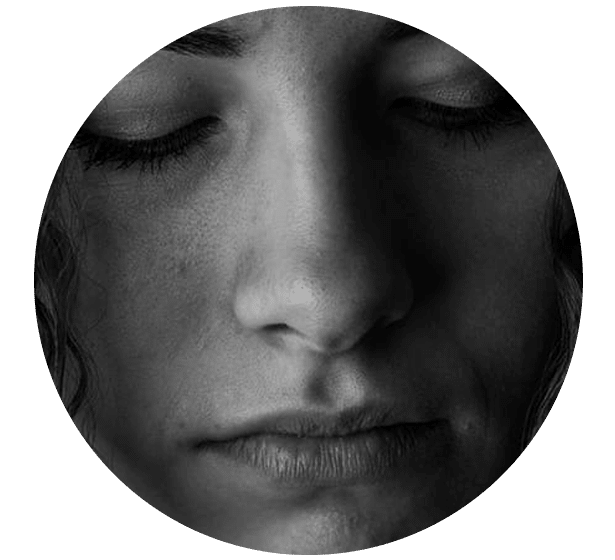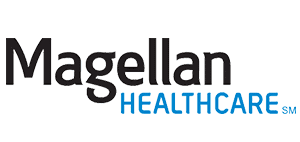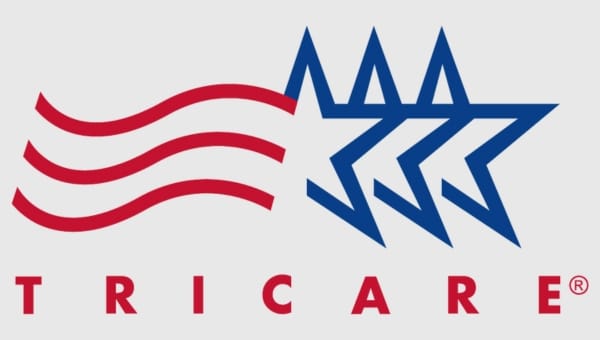Beating heroin addiction on your own is possible in rare circumstances – however, in most cases, professional heroin redhab and medical treatment are necessary. To safely detox from heroin and stop using it for good, users typically need medical detox, time away from triggers, behavioral therapy, and often, medication.
Heroin is a powerful opioid that enters your system quickly, affecting your brain chemicals, heart rate, feelings of pain and pleasure, and sleep. It’s dangerous even if used in small doses and has a high addiction potential.
Seeking help for heroin addiction can feel daunting, but a better life awaits. Heroin rehab is available with support from professionals who can help you safely get to recovery.

What Is Heroin?
Heroin, also known as diacetylmorphine and diamorphine, is a highly addictive and illegal drug that belongs to the opioid family. It is made from processing morphine, which is derived from the opium poppy plant. Heroin is typically sold as a white or brownish powder, while black tar heroin is another form of the drug.
Heroin works by binding to opioid receptors in the brain and triggering a flood of dopamine, a neurotransmitter that regulates pleasure and reward. This creates an intense feeling of euphoria and relaxation for the user. However, repeated use can lead to physical and psychological dependence, making it difficult for individuals to quit without professional help.
The Effects of Heroin Use
While heroin may provide temporary feelings of pleasure and escape from reality, it also has numerous negative effects on the body and mind. Some of these effects include:
Physical Health Consequences
Heroin abuse can have severe and long-lasting effects on the body. People are at risk of contracting diseases such as hepatitis or HIV from sharing needles, and many also experience collapsed veins, bacterial infections, abscesses, and liver or kidney disease. Additionally, heroin can cause respiratory problems such as pneumonia and bronchitis. It also suppresses cough reflexes, which may result in lung damage from repeated infections.
Mental Health Impacts
Beyond the physical consequences, heroin use can also have detrimental effects on an individual’s mental health. Chronic users often experience depression, anxiety, and other mood disorders due to changes in brain chemistry caused by the drug.
Heroin use can also lead to increased aggression and impulsivity, making it difficult for individuals to maintain healthy relationships or make rational decisions.
Social Consequences
The consequences of heroin use extend beyond the individual and can greatly impact their social life. Users may withdraw from family and friends, leading to strained relationships and feelings of isolation. As addiction takes hold, many individuals turn to illegal activities such as theft or prostitution to fund their habit, risking legal repercussions and further damage to their personal relationships.
Financial Burdens
The cost of maintaining a heroin addiction can quickly become overwhelming, leading users to resort to extreme measures to support their habit. This can include draining savings accounts, borrowing money from loved ones, or turning to crime. As a result, individuals may face financial ruin and struggle to maintain their basic needs.
Health Complications
Heroin use can have severe and long-lasting effects on the body. Users are at risk of contracting diseases such as hepatitis or HIV from sharing needles, and many also experience collapsed veins, heart infections, liver disease, and respiratory problems. Overdose is also a constant threat for those who continue to use heroin.
Heroin Abuse and Loss of Control
One of the most alarming consequences of heroin addiction is the loss of control over one’s own life. As users become increasingly dependent on the drug, they may find it difficult to function without it. This can lead to neglecting responsibilities such as work or school, putting strain on personal relationships, and ultimately losing
The Dangers of Heroin Overdose
There is a high risk of overdose due to the varying potency and purity levels of the drug, which can differ significantly from batch to batch. This unpredictability makes it nearly impossible for users to know the exact strength of what they are taking, increasing the likelihood of taking a lethal dose. As a result, heroin poses a constant and serious threat to the health and safety of those who continue to use it, often leading to tragic outcomes.
Heroin Addiction Stats
The opioid crisis in the U.S. is serious, taking many lives and causing significant harm to others. According to the Substance Abuse and Mental Health Services Administration, in just one year (2020), 902,000 Americans used heroin. Because of its highly addictive nature, heroin addiction can be a chronic relapsing condition – one study showed that around 72% to 88% of heroin users relapse within 34 months of gaining sobriety.
Signs You Need Heroin Addiction Treatment
Heroin is a highly addictive drug because of the way it affects your brain’s reward system. You can quickly develop a tolerance to it, needing increasing amounts to get the desired effects. At a certain point in the addiction cycle, you start seeking out heroin just to prevent uncomfortable and often dangerous withdrawal symptoms.
Signs of heroin addiction include:
- Failed attempts at cutting back or quitting heroin on your own
- Needing increasing amounts of heroin to achieve the desired high
- Developing a physical dependence on heroin and feeling sick without it
- Problems or absences at work or school
- Withdrawing from family and friends
- Apathy toward activities you once enjoyed
- Constant preoccupation with how you’ll get more heroin and when and where you will use it again
- Financial or legal problems tied to heroin use
- Selling possessions or stealing to fund your drug addiction
- Changes in weight and appetite
- Poor personal hygiene and disheveled appearance
Heroin Withdrawal Symptoms
Heroin withdrawal symptoms may begin within 12 hours of the last dose. The worst withdrawal symptoms usually peak between the second and third day of detox; then, the symptoms slowly taper off. Detox may take up to a week for some people, and some people experience lingering symptoms beyond a week.
Physical and emotional withdrawal symptoms include:
- Strong heroin cravings
- Heavy sweating
- Nausea and stomach issues
- Digestive issues
- Body aches
- Joint pain
- Chills
- Anxiety
- Sleep disturbances
- Suicidal thoughts
- Hallucinations
- Depression
Need Help For Heroin Addiction?
Our admissions team is available around the clock to help you or a loved one get the help you need.
Heroin Addiction Treatment Programs
After detox is completed and medical treatment is established, heroin rehab programs can begin. Addressing the reasons behind drug and alcohol use and learning healthy coping skills are necessary for long-term recovery.
Depending on the severity of your addiction, there are several levels of care available:
- Detox program
- Inpatient treatment program
- Outpatient treatment programs
Heroin addiction can be a difficult battle to overcome. That’s why at Vogue Recovery Center, we understand the importance of offering various treatment options to fit each individual’s needs. Our inpatient and outpatient treatment options are designed to support individuals at every stage in the recovery process.
Heroin Detox
Heroin abuse can have a strong physical impact. The withdrawal that occurs between uses becomes an inevitable part of the addiction cycle. Heroin withdrawal symptoms are quite uncomfortable and often lead to continued use or relapse, so medical detox is generally required before beginning further rehabilitation.
Detoxing off of heroin with medical support helps your body adjust gradually instead of quitting heroin “cold turkey.” Medically-assisted detoxification can reduce cravings and withdrawal symptoms. Your body won’t need opioids eventually, and you’ll have only mild withdrawal symptoms.
Inpatient Treatment
Inpatient heroin addiction treatment is an ideal setting for successful heroin rehab. With 24/7 access to behavioral health and medical professionals, this setting provides space away from triggers. Inpatient heroin treatment also offers a structured and supportive environment, which can be crucial for those struggling with heroin addiction.
At Vogue Recovery Center, our inpatient program is designed to help individuals overcome their struggles with heroin addiction. Our team of highly trained professionals will work closely with each patient to develop an individualized treatment plan that addresses their specific needs and goals.
In our inpatient program, patients will have access to various evidence-based therapies such as cognitive behavioral therapy, dialectical behavior therapy, and motivational interviewing. These therapies are effective in helping individuals understand the root causes of their addiction and develop coping mechanisms to prevent relapse.
Outpatient Treatment
Outpatient options are available as a “step down” after inpatient heroin rehab is completed successfully or if inpatient treatment is not feasible:
- Partial hospitalization programs allow you to live at your residence while attending treatment for most of the day.
- Intensive outpatient programs offer programming during daytime or nighttime hours for 1-3 hours per session, allowing participants to continue to live at home and go to work.
- Outpatient treatment programs allow for flexibility and the ability to attend therapy sessions, group meetings, and other activities on a part-time basis.
Medication-Assisted Treatment (MAT) In Heroin Detox and Rehab
Specialized medications are utilized alongside heroin rehab programs to reduce cravings for heroin and ease withdrawal symptoms. Medication-assisted treatment (MAT) can improve your treatment outcomes. When you’re not dealing with intense cravings or withdrawal, you can better focus on the treatment you need to maintain long-term sobriety.
The following opioid addiction medications are approved by the FDA and may be used in MAT:
- Buprenorphine
- Naltrexone
- Suboxone
- Methadone
Buprenorphine
Buprenorphine is a partial opioid agonist that binds to the same opioid receptors as heroin. It essentially tricks your brain into thinking it’s heroin, so your brain doesn’t produce withdrawal symptoms and cravings. If taken as directed, buprenorphine is safe and effective and does not have the same addictive euphoric effects as heroin.
Naltrexone
Naltrexone, or the brand name Vivitrol, is an opioid antagonist given via injection by a medical provider. Like buprenorphine, it binds to opioid receptors to ease withdrawal symptoms and cravings. Vivitrol is a full opioid antagonist, so if you relapse and take heroin with it, the risk of overdose is significant.
Suboxone
Suboxone combines buprenorphine and naloxone and is prescribed as a dissolvable film you place under your tongue. The naloxone in Suboxone can safeguard against misuse and overdose. Suboxone also prevents you from getting high from heroin or other opioids while taking it.
Methadone
Methadone is a long-acting, full opioid agonist that can help prevent heroin cravings and reduce withdrawal symptoms. Because it carries a high potential for abuse, methadone treatments are administered at a licensed methadone clinic.
Heroin Relapse Prevention and Aftercare
Aftercare planning is a crucial part of rehab and critical for relapse prevention. The risk of relapse is often most significant at times of transitioning home or away from the treatment center. It’s essential to have a solid support group and treatment plan when leaving intensive treatment programs.
About two weeks before discharge, the heroin rehab center you attend will help you with an aftercare plan. Components of continuing care include:
- Individual therapy sessions
- Family therapy
- Continued medication-assisted treatment
- Psychiatric appointments
- 12-step programs like Narcotics Anonymous (NA)
- Participation in your addiction treatment center’s alumni meetings and events
- Ongoing drug testing
- Transitioning to a sober living home
Does Insurance Cover Heroin Addiction Treatment?
One of the most-asked questions when it comes to treating heroin addiction is whether or not insurance will cover the cost of treatment. If you’re wondering how to pay for rehab, the good news is that insurance can cover part or all of the cost of treatment. All insurance providers and policies are different, but a free insurance verification with the team at Vogue Recovery Center can offer more information about what treatment options for substance abuse and mental health issues you have available based on your policy.
Don’t hesitate to contact the admissions team at Vogue Recovery Center today and get started with your recovery journey! An heroin overdose is a real possibility for those with a history of abusing pain management medication. Don’t let a substance abuse disorder take your health and happiness away. The treatments for heroin abuse at Vogue Recovery Center are safe and effective. The team is waiting and ready to help you get better, so let’s get started.
Get Help For Heroin Addiction
Vogue Recovery Center provides evidence-based treatment for addiction and co-occurring disorders. We draw on a blend of approaches, from individual and group therapy to experiential and trauma-focused therapy. Our Las Vegas and Phoneix treatment facilities are staffed with expert addiction treatment professionals and are home-like and welcoming.
Overcoming heroin addiction is one of the most challenging endeavors you will experience. Let Vogue help you start on your path toward recovery. Take back your life alongside thousands of success stories at Vogue. Call us today for a free, confidential consultation.
- https://www.samhsa.gov/data/sites/default/files/reports/…
- https://www.ncbi.nlm.nih.gov/pmc/articles/PMC5046044/
- https://archives.nida.nih.gov/news-events/science-highlight/scientists-identify-brain-circuits-engaged-in-compulsive-heroin-use
- https://www.ncbi.nlm.nih.gov/books/NBK310652/
- https://www.samhsa.gov/medications-substance-use-disorders/medications-counseling-related-conditions#medications-used-in-mat
- https://www.fda.gov/drugs/information-drug-class/information-about-medications-opioid-use-disorder-moud

Medically Reviewed by Kelsey Jones, MS, LPC















